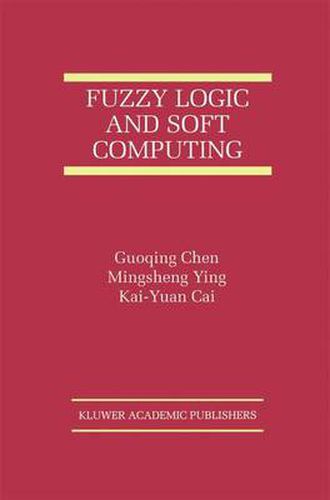Readings Newsletter
Become a Readings Member to make your shopping experience even easier.
Sign in or sign up for free!
You’re not far away from qualifying for FREE standard shipping within Australia
You’ve qualified for FREE standard shipping within Australia
The cart is loading…






This title is printed to order. This book may have been self-published. If so, we cannot guarantee the quality of the content. In the main most books will have gone through the editing process however some may not. We therefore suggest that you be aware of this before ordering this book. If in doubt check either the author or publisher’s details as we are unable to accept any returns unless they are faulty. Please contact us if you have any questions.
This volume contains contributions from world-leading experts from both the academic and industrial communities. The first part of the volume consists of invited papers by international authors describing possibilistic logic in decision analysis, fuzzy dynamic programming in optimization, linguistic modifiers for word computation, and theoretical treatments and applications of fuzzy reasoning. The second part is composed of 11 contributions from Chinese authors focusing on some of the key issues in the fields: stable adaptive fuzzy control systems; partial evaluations and fuzzy reasoning; fuzzy wavelet neural networks; analysis and applications of genetic algorithms; partial repeatability; rough set reduction for data enriching; limits of agents in process calculus; medium logic and its evolution; and factor spaces canes. These contributions are not only theoretically sound and well-formulated, but are also coupled with applicability implications and/or implementation treatments. The domains of applications realized or implied are: decision analysis; word computation; databases and knowledge discovery; power systems; control systems; and multi-destinational routing. Furthermore, the articles contain materials that are an outgrowth of recently conducted research in the late 1990s, addressing fundamental and important issues of fuzzy logic and soft computing.
$9.00 standard shipping within Australia
FREE standard shipping within Australia for orders over $100.00
Express & International shipping calculated at checkout
This title is printed to order. This book may have been self-published. If so, we cannot guarantee the quality of the content. In the main most books will have gone through the editing process however some may not. We therefore suggest that you be aware of this before ordering this book. If in doubt check either the author or publisher’s details as we are unable to accept any returns unless they are faulty. Please contact us if you have any questions.
This volume contains contributions from world-leading experts from both the academic and industrial communities. The first part of the volume consists of invited papers by international authors describing possibilistic logic in decision analysis, fuzzy dynamic programming in optimization, linguistic modifiers for word computation, and theoretical treatments and applications of fuzzy reasoning. The second part is composed of 11 contributions from Chinese authors focusing on some of the key issues in the fields: stable adaptive fuzzy control systems; partial evaluations and fuzzy reasoning; fuzzy wavelet neural networks; analysis and applications of genetic algorithms; partial repeatability; rough set reduction for data enriching; limits of agents in process calculus; medium logic and its evolution; and factor spaces canes. These contributions are not only theoretically sound and well-formulated, but are also coupled with applicability implications and/or implementation treatments. The domains of applications realized or implied are: decision analysis; word computation; databases and knowledge discovery; power systems; control systems; and multi-destinational routing. Furthermore, the articles contain materials that are an outgrowth of recently conducted research in the late 1990s, addressing fundamental and important issues of fuzzy logic and soft computing.